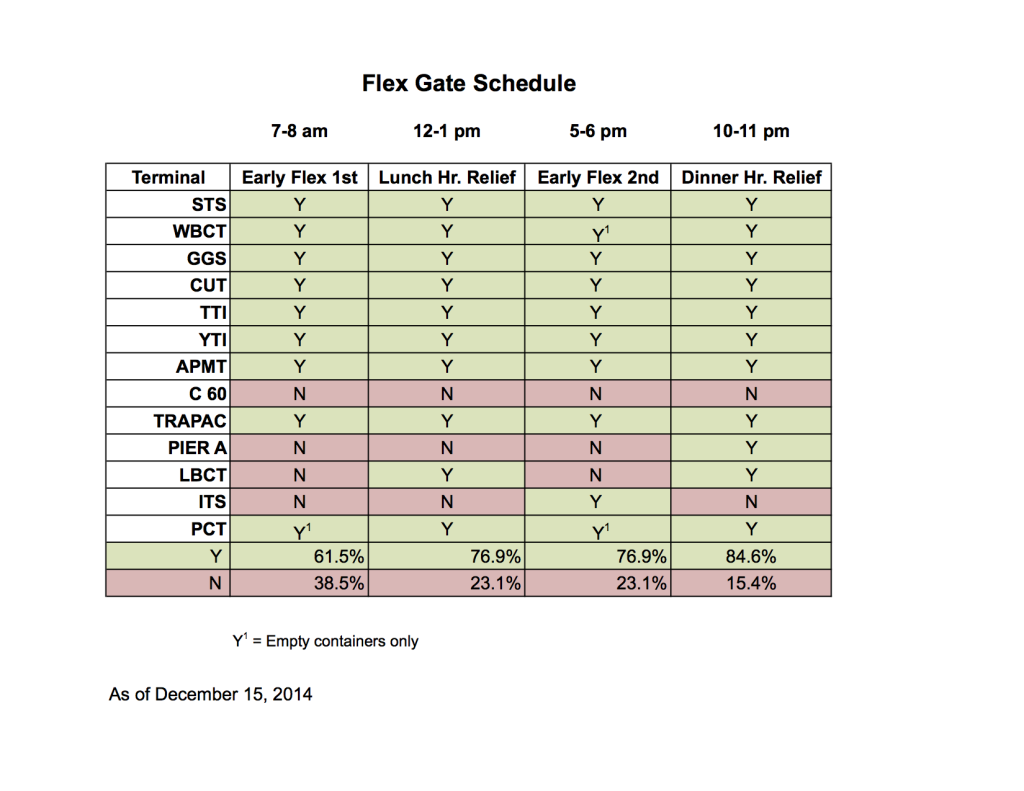Overview
The marine terminals at the Port of Los Angeles and Port of Long Beach continued to experience unusually high congestion during November, and responded by operating 55% more OffPeak truck gates than originally scheduled.
The largest cause of congestion over the past several months has been the shortage of available chassis. This has been compounded by shortages of available longshore labor and truck drivers.
Marine terminal operators (MTOs) continued to work additional shifts in November to alleviate congestion. MTOs operated 118 additional gates (shifts open to truck traffic) in November, a 55% increase over the 213 OffPeak gates originally scheduled for the month. The MTOs operated 73 additional gates in September, a 30% increase, and 86 additional gates in October, a 33% increase.
The MTOs have been spending $3 million per week on additional and unbudgeted costs since September 1 to manage congestion. In addition to adding unscheduled gates and shifts, terminals have been working overtime and through lunch and breaks, and paying truckers to move containers between terminals to load on-dock trains.
PierPass Monthly Transaction Data
The same factors increasing congestion inside the terminals have also driven up truck turn times. Below please find data from November.
Average in-terminal turn time:
- 58.3 minutes day shift
- 61.4 minutes night shift
- Turn times for November include 12 of 13 terminals reporting
For comparison, the average in-terminal turn time in October 2014 was 51.8 minutes for the day shift and 55.5 minutes for the night shift.
In-terminal turn time is the average amount of time a truck is inside a terminal to complete a transaction. Truck activity information is derived from RFID data, and excludes lunch hour, breaks and trouble tickets. Turn time at individual terminals will vary depending on time of day and other factors. For more information about turn times and how we measure them, please see our Q&A at http://goo.gl/PiOjBp.
Average daily moves per truck for frequent callers* in November:
- 5 or moves per day: 5%
- 4 moves per day: 10%
- 3 moves per day: 29%
- 2 moves per day: 36%
- 1 move per day: 20%
*The ports define frequent callers as trucks making one or more moves per weekday. Average moves per day by frequent callers tells us how many moves a truck can make if it is working every day. In November, 15 percent of frequent callers made four or more moves per day.
Gate moves during Peak and OffPeak/exempt shifts:
- Total Peak gate moves: 369,631 (54%)
- Total OffPeak/Exempt gate moves: 315,783 (46%)
A gate move occurs when a container enters or leaves a marine terminal via the truck gates. Peak shifts are Monday through Friday, 8:00 a.m. to 5:00 p.m. OffPeak shifts are Monday through Friday, 6:00 p.m. to 3:00 a.m., and Saturday 8:00 a.m. to 5:00 p.m. Saturday night and Sunday shifts, which are not regularly scheduled, are considered “exempt.”
Note: All terminals were closed for the Thanksgiving Day holiday, and for an ILWU meeting on Nov. 6.
To learn what it takes for a truck to drop off or pick up a container at a marine terminal, please see http://youtu.be/P9IJN1yIIJ4.

